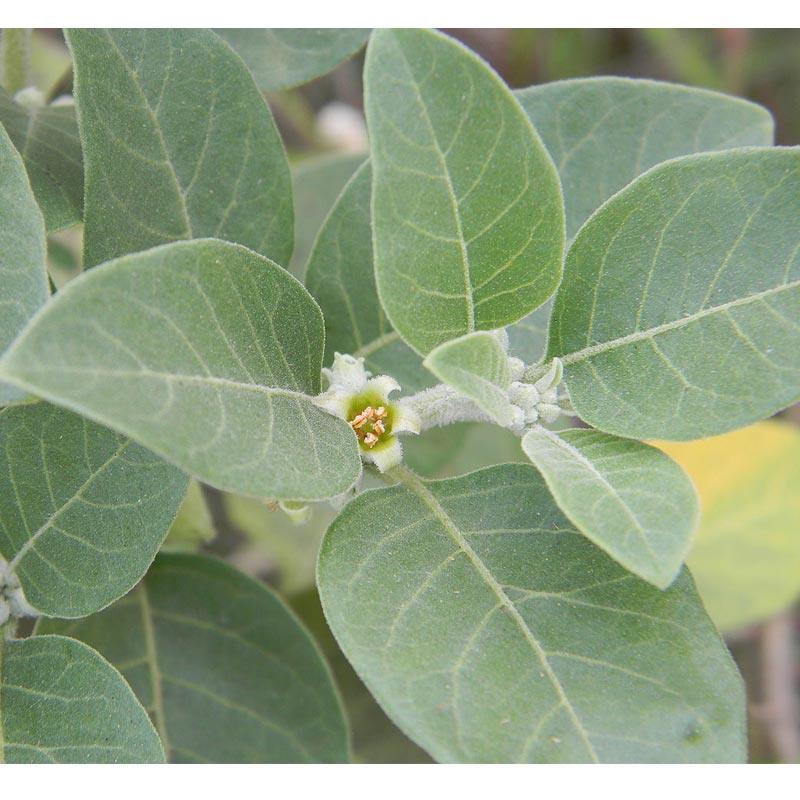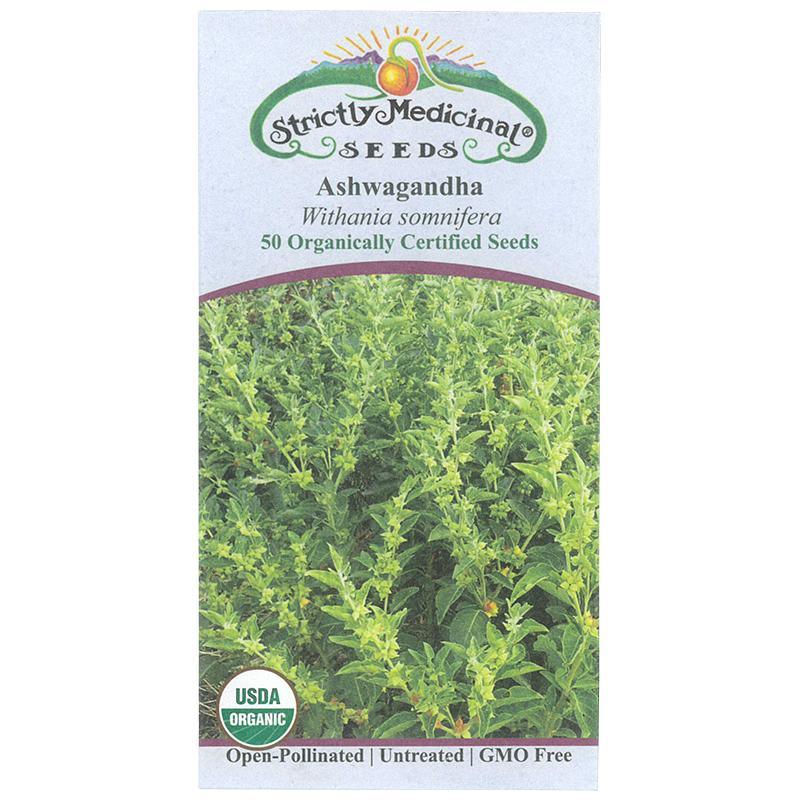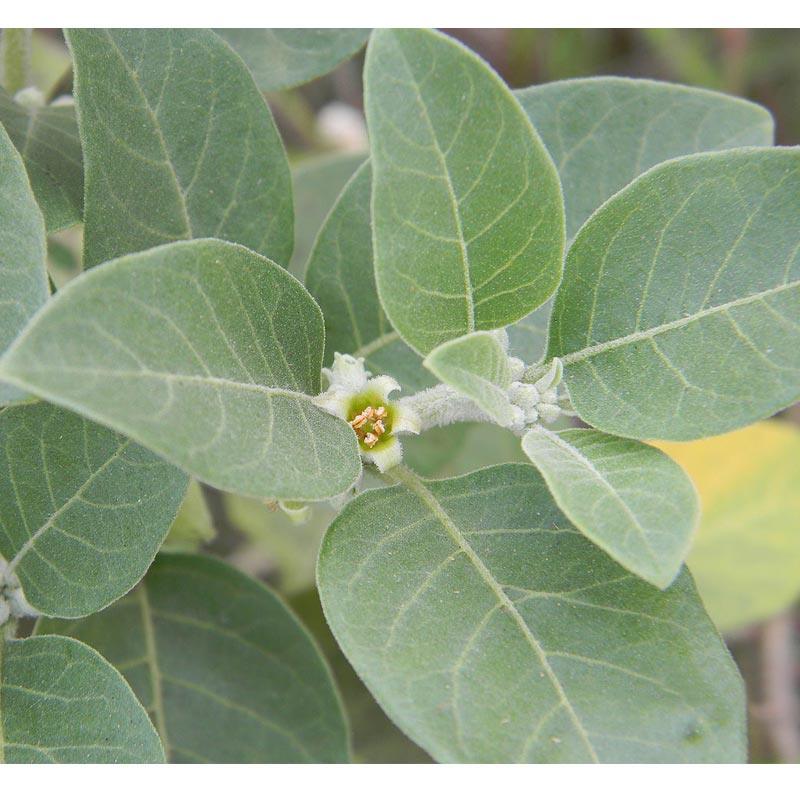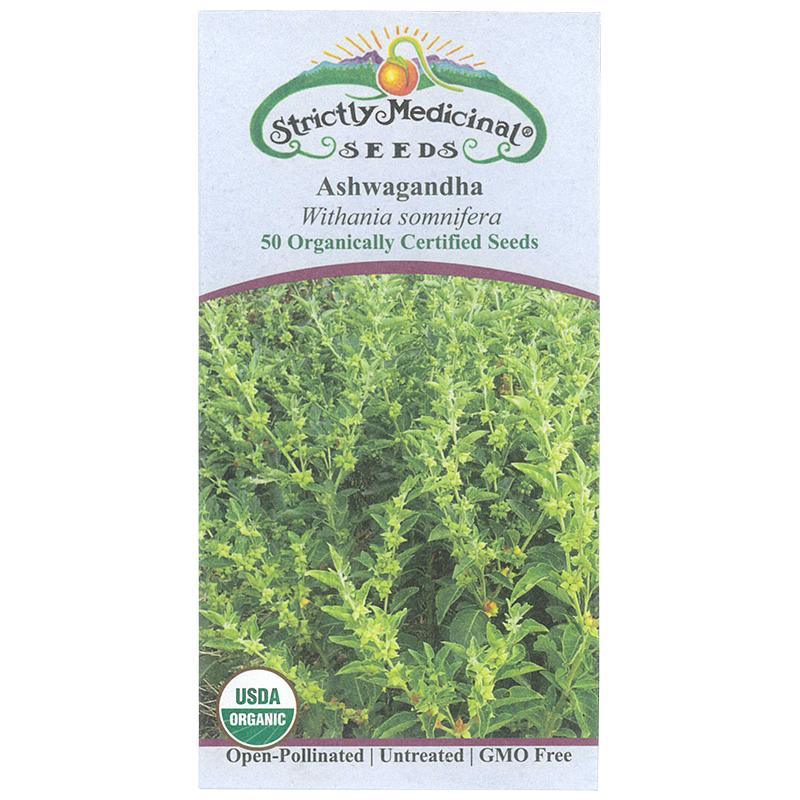Item Number: SNV7003
Ashwagandha Seeds (Organic)
The "Indian Ginseng"
Vedic Ashwagandha - Withania somnifera
Perennial (in zones 8 and above). Easy to grow, unusual, useful, also increasingly popular herb. In zones cooler than 8, is grown as a summer annual.
Approx. 50 seeds per packet.
Photo by Neha Vindhya
Organic Ashwagandha Seeds (Withania somnifera), also known as heirloom Nagori Ashwagandha, are prized for their potent roots and adaptability in the garden. This elite strain hails from India’s Rajasthan region and is known for producing straight, starchy, and brittle roots with a mild, slightly sweet flavor. Traditionally revered in Ayurvedic medicine as an energy tonic, the plant brings both historical significance and practical value to any herbal garden.
As a member of the nightshade family (Solanaceae), Ashwagandha grows as a low-profile, herbaceous or evergreen subshrub in zones 8 to 12, but it performs well as an annual in cooler climates. It matures in approximately 95 days and thrives in full sun with minimal water once established. The plant’s broadly ovate leaves and yellow berries make it visually appealing, while its fast growth and drought tolerance add to its reliability.
Whether grown in a large container or directly in the ground, Ashwagandha adapts well to sandy, loamy, or quality potting soil. This light-dependent germinator should be sown indoors or in a greenhouse in early spring, with an average germination time of 15 days. Plants should be spaced about one foot apart. At the end of the growing season, once the tops die back with frost, the roots can be harvested, cleaned, cut, and dried for traditional herbal use.
Ashwagandha is a rewarding addition to any garden—compact, hardy, and rich in cultural and medicinal history.




Check Your Zone Compatibility:
Compatible with your zone.
Growing Zone for

Our Guarantee To You
Since 1976, we've served our customers at every stage of growing. Please contact us at any time. We are happy to support and assist you.
Shipping Information
Shipping Information
Shipping Weight: 0.01 lb
Dimensions: 5.0"L x 2.625"W x 0.1"H
Features
Features
- Good for Drying
- Open-Pollinated
- Requires Summer Water
- Somewhat Drought Tolerant
Characteristics
Characteristics
Planting & Care
Planting & Care
Soil & Water: A tropical that prefers well drained soil in full sun. Keep seed bed evenly moist until germination occurs.
Planting & Growing: Sow in pots or flats in the greenhouse or under lights in the spring. Barely cover and tamp securely then keep warm and evenly moist with light until germinates (up to 4 weeks). Pot into successively larger pots and then transplant outside 2 feet apart.
Harvesting & Storage: Harvest both berries and root to dry for storage.
Useful Information
Useful Information
Guarantee
Guarantee
Share



The last seeds I purchased elsewhere never germinated 😞. Hopefully these do when I attempt to germinate in a couple of months. This herb has great medicinal properties
I’ve had no trouble getting these to germinate. I start all my seeds indoors with a warming mat.
I am changing my review, earlier on only about 3 seeds sprouted, now almost all on them except about 4 have sprouted. It took a while for the others to wake up but I can say I am eager to see them grow nice and healthy.
It’s been a couple weeks since planting, so far only 4 seeds have sprouted. I was going to give a lower score but a few sprouted and still have hope. I can’t give a higher review since only a small number have sprouted, but will gladly change it if they eventually sprout.



